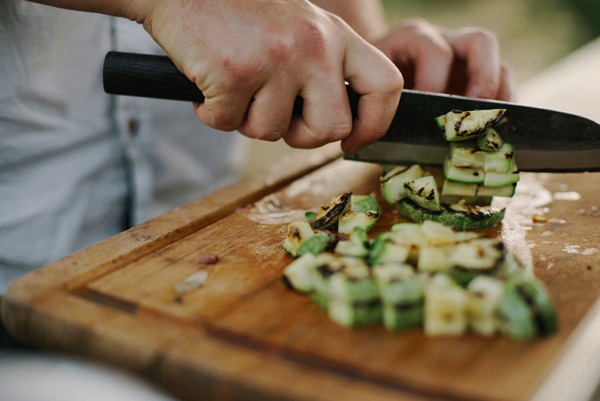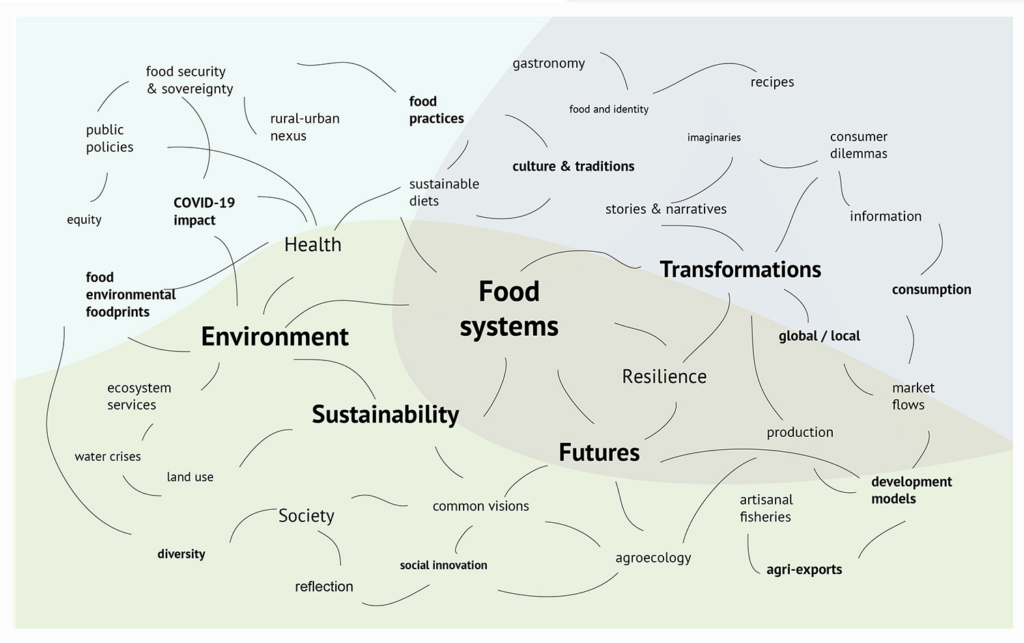Tasting sustainability in Uruguay: towards food systems that work for people and the planet

9th. SARAS Public Conference – 2019-2021 thematic cycle
Tasting Sustainability in Uruguay: towards food systems that work for people and the planet
As it has become especially evident from the COVID-19 pandemic, food stands -like almost no other area- as a key axis and motor of our lives. The cycle of production to consumption (and the many associated processes) presents multiple social, cultural, productive, economic, political, environmental, and human health challenges at all levels of scale. Understanding food as a determining force of existing and possible realities, it is now necessary to advance towards the transformation of global food systems so that they can be sustainable and resilient while enabling appropriate, healthy, and fair lives and livelihoods within planetary limits.
Food & Sustainability thematic cycle
Since 2019, SARAS Institute has been working on a thematic cycle focused on food and sustainability. After December 2019’s workshop: “Tasting sustainability in Uruguay: towards food systems that work for people and the planet.”, the organizing team, along with a series of local and international actors, has continued a collaborative work process to advance discussions, knowledge and foster debate while imagining and proposing possible sustainable food strategies for Uruguay and the region.
Informed by the collective space generated last year, during 2020, the organizing team has been supporting and developing a series of projects working around the themes and challenges that make the sustainability and resilience of local food systems.
By adopting multiple perspectives and focuses, the work is widely organized under three main thematic axes: Fisheries, Agri-exports, and Agroecology, all of which adopt different systemic framings of analysis, including dynamics that look at the local, regional and global spheres. This structuring of our work has allowed the generation of spaces for debate and collective work that further connect with and crisscross diverse issues such as models of development, global trade logics, local and global policies, consumption habits and practices, cultural traditions and identity, emerging grassroots initiatives and social change experiments, new opportunities for food literacy and education, and the exploration of future food visions and scenarios.
Online activities program 2020: “Knowledge on the table” Towards sustainable food systems and practices
Currently, researchers from various disciplines, civil society actors, chefs, and artists, among others are converging on over 10 projects. During 2020, these projects will advance their development and open multiple spaces (mainly virtual) for the communication, dissemination, and exchange of knowledge based on or related to each initiative and/or the whole cycle.
The activities related to the thematic cycle are listed below. These events are organized within the framework of the thematic cycle as projects, as well as the spaces where their managers participate.
- Discussion tables on Environment and Development / CONICYT (National Council for Innovation, Science and Technology)
October 13 and 27 from 4 to 6 p.m.
Registration:
October 27th Click here - Permanent Education Course “Provoking transitions: crossing design, food, and sustainability in the local context”
More info and registration (Information only in Spanish)
October 1 to November 5 - VIII Latin American Congress of Agroecology Organized by the Latin American Scientific Society of Agroecology (SOCLA) and the Agroecology Group of the Department of Environmental Systems of the Faculty of Agronomy of the University of the Republic.
The COVID Foodways project will be presented
More info about the congress (Information only in Spanish)
November 25, 26, and 27 2020
The work developed during 2020 will be showcased in an open virtual event where multiple free and participatory activities will be proposed. This event will take place in early March 2021.
Organizing team (Includes additional filiation from SARAS)
Matilda Baraibar (Stockholm University), Gabriela Bardecio, Laurie Beth Clark (University of Wisconsin-Madison), Lisa Deutsch (Stockholm Resilience Centre), Mauricio Cheguhem (University of Salamanca, Spain, RESACA), Alejandra González Soca (University of the Republic, Uruguay; Catholic University, Uruguay, RESACA), Esteban Jobbágy (National University of San Luis), Silvana Juri (Carnegie Mellon University), Néstor Mazzeo (CURE-UdelaR), Mariana Meerhoff (CURE-UdelaR), Fiorella Polcaro, Gabriela Torchio (Arturo Jauretche National University), Micaela Trimble.
If you’d like to get in touch with the organizing team please send an email to:
conferencias@saras-institute.org

To learn more about related contents, see the following:
“The food route in the current situation, an opportunity to reflect on our food practices on the day of sustainable gastronomy” (Only in Spanish)
Main photo: Max Delsid on Unsplash
Cover banner photo: Toa Heftiba on Unsplash
